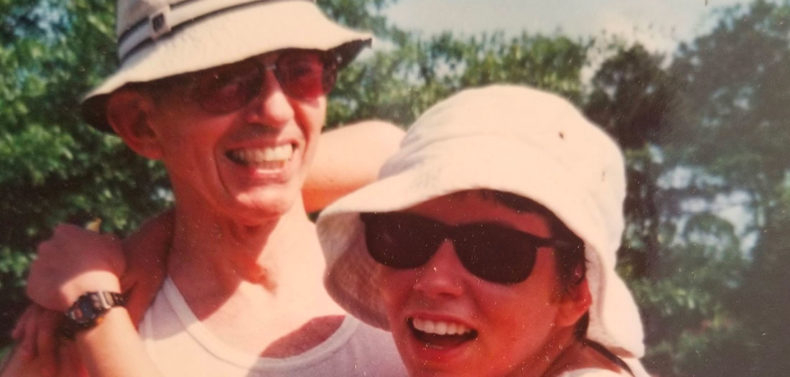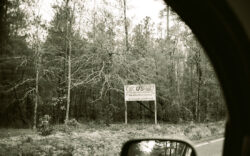The family of Milner Ball has been running ads supporting the free press and thanking Flagpole “for being there at this important time in Athens.” And of course their ads do help support Flagpole. His family’s promotion of the free press gains resonance if you know who Milner Ball was.
Milner and June Ball came to Athens when he was hired as the chaplain at UGA’s Presbyterian student center, Westminster House. Milner was graduated from Princeton and from the Harvard divinity school and was an ordained Presbyterian minister. At Harvard, he was steeped in the social gospel—that you don’t just preach good works, you do good works: You get directly involved in public life and try to make a difference. Milner plunged into life here in Athens, and his ministry expanded to include becoming a challenge-delegate to the infamous 1968 Democratic Convention in Chicago, where his slate, led by Julian Bond, was successful in unseating the handpicked party regulars and was officially recognized as the official and much more diverse delegation from Georgia.
Milner was too much for the Synod of Georgia, in spite of strong support from the elders at Athens’ First Presbyterian Church, who oversaw the student center. Conservative elements in the Synod prevailed, and they fired Milner, and thereby June, too, who was right there along with him in social activism, in addition to raising a family and becoming the fine landscape painter she has been ever since then.
That convinced Milner that the ministry was too slow a way to bring about change, so he enrolled in the UGA law school, graduated first in his class and took a job teaching in the Rutgers law school in New Jersey. After six or seven years at Rutgers, Milner came back to the UGA law school, where he taught and wrote prolifically for 26 years in such areas as environmental law, Native American tribal law, jurisprudence, law and theology, and constitutional law. “Prolifically” scarcely denotes the output of Milner’s scholarship. He wrote four books and such a long list of articles, chapters, reviews and other legal writings that it doesn’t seem humanly possible, even if he had done nothing else. But Milner was also out in the world, showing by his own life how his students could make the law an instrument of involvement and change for the betterment of human life.
Plus, however tightly wound he was inside, Milner was a low-key guy who always had time for friends and always cut to the chase and did not beat around the bush. When Milner asked how you were getting along, he drilled into you and found out how you were really doing and knew how to help you do what you needed to do. He was ever the minister-lawyer-professor.
At the time of Milner’s death in 2011, R.E.M. attorney Bertis Downs recalled him as a teacher who became a friend: “I have never known anyone who cared more about the people around him, broadly defined, as Milner Ball, and who was willing to do the hard work, and inspire others to join him, in helping the weakest among us—a minister of the word in the truest biblical sense. The many joys I shared with Milner included being his student and later his friend, grateful recipient of his mentoring and guidance, our many wonderful trips and adventures together and the honor and meaning attached to Milner baptizing our daughters.”
Milner was a runner and a biker, and he ran and rode with the same fierce determination that drove his disciplined life. His daughter Virginia may have discovered the secret to Milner’s prodigious drive when for the first time she ran a triathlon with him. Running through Five Points near the finish line but overheating and feeling awful, she heard these words from her father that she still hears at the most stressful moments in her life: “You are doing a great job, you no longer feel like this is going well, you feel that you may be about to fail. This is normal. When you attempt something bigger than yourself, somewhere towards the end, when finishing is in sight, you start to feel at your lowest and that you are not capable of finishing. The more of these experiences you have, the better you will get at recognizing this moment, the one just before you finish, when you invariably feel like giving up.”
Milner never gave up, and he inspires us still to persevere, especially in these deeply challenging times. Thanks to his family for their support of Flagpole. If you want to participate, too, it is easy enough to set up a recurring payment through Paypal of whatever amount you can afford. Or just send a check to P.O. Box 1027, Athens 30603. We are struggling to keep Flagpole going. Thanks.
Like what you just read? Support Flagpole by making a donation today. Every dollar you give helps fund our ongoing mission to provide Athens with quality, independent journalism.










